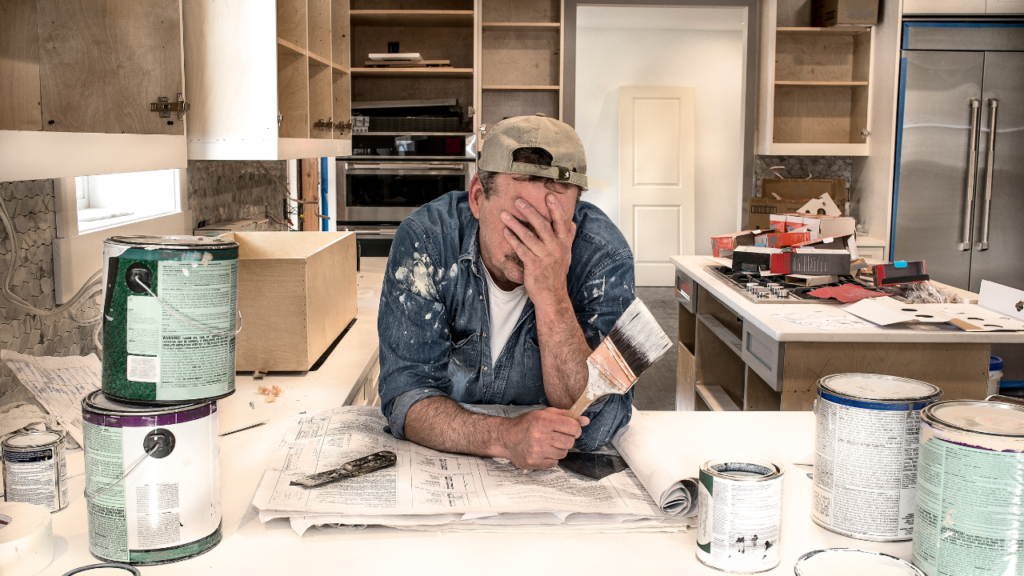
Are you in the market for a new home and considering purchasing a fixer-upper? While the idea of renovating and customizing a home to your liking can be exciting, it’s important to weigh the pros and cons before making a decision. In this article, we’ll explore the benefits and drawbacks of buying a fixer-upper house.
What is a Fixer-Upper House?
A fixer-upper house is a property that requires significant renovations or repairs before it can be considered move-in ready. These homes may have outdated or damaged features, such as old electrical wiring, leaky roofs, or outdated plumbing systems.
Pros of Buying a Fixer-Upper House
Lower Price
One of the biggest advantages of buying a fixer-upper house is the lower cost compared to move-in ready homes. Because these properties require significant repairs and renovations, they often come with a lower price tag. This can be a great option for buyers on a budget or those looking to invest in a property with the potential for high returns.
Customization
Buying a fixer-upper also gives you the opportunity to customize your home to your exact specifications. You can choose the materials, colors, and design elements that suit your style and needs. This level of customization is not possible with move-in ready homes that come with pre-selected finishes and designs.
Equity
By purchasing a fixer-upper, you have the opportunity to build equity in your home quickly. Equity is the difference between your home’s market value and the amount you owe on your mortgage. As you make renovations and repairs, your home’s value will increase, allowing you to build equity and potentially sell for a profit in the future.
Opportunity for Profit
If you’re interested in real estate investing, buying a fixer-upper can be a smart financial decision. These properties often have a lower initial cost and the potential for a high return on investment (ROI) when the repairs and renovations are completed. This is especially true in areas where property values are on the rise.
Learning Experience
Taking on a fixer-upper project can also be a great learning experience for those interested in home renovation and repair. You’ll have the opportunity to learn new skills and gain hands-on experience as you work on your home. This can be a great way to save money on future repairs and renovations by being able to complete them yourself.
Cons of Buying a Fixer-Upper House
Hidden Costs
While buying a fixer-upper house can save you money upfront, it’s important to remember that there may be hidden costs. Once you start the renovation process, you may uncover additional repairs or issues that need to be addressed. These unexpected costs can quickly add up, making the overall cost of the project much higher than initially anticipated.
Stressful Experience
Taking on a fixer-upper project can be a stressful experience, especially if you’re working with a tight budget or strict timeline. Renovations can be disruptive to your daily routine and may cause added stress to your life.
Safety Concerns
Older fixer-upper homes may have safety concerns that need to be addressed, such as outdated electrical systems or hazardous materials like asbestos or lead paint. These issues can be costly and time-consuming to address, and may even require professional assistance.
Difficulty Reselling
While buying a fixer-upper can be a smart investment, it’s important to consider the resale value of the property. Renovations and repairs may not always result in a higher resale value, and it may be more difficult to find a buyer for a fixer-upper than a move-in ready home.
Tips for Buying a Fixer-Upper House
If you’re considering purchasing a fixer-upper, there are a few key tips to keep in mind:
- Hire a reputable home inspector to identify any major issues with the property before making an offer.
- Create a detailed renovation plan and budget to help you stay on track and avoid unexpected costs.
- Work with experienced contractors and tradespeople to ensure that the renovations are done correctly and up to code.
- Be prepared to invest time and energy into the project, as well as potentially living in a construction zone for an extended period of time.
Buying a fixer-upper can be a smart financial decision for those willing to put in the time and effort required to make renovations and repairs. While these properties come with lower upfront costs and the potential for high returns, it’s important to weigh the pros and cons before making a decision. Consider your budget, timeline, and overall goals for the property before taking on a fixer-upper project.
Frequently Asked Questions
How much should I budget for renovations on a fixer-upper?
The amount you should budget for renovations on a fixer-upper house can vary greatly depending on the condition of the property and the scope of the renovations you plan to make. As a general rule of thumb, it’s a good idea to budget at least 10-20% of the purchase price of the property for renovations and repairs.
It’s also important to create a detailed renovation plan and budget before making an offer on the property. This will help you identify the most critical repairs and upgrades, as well as estimate the cost of materials and labor. Be sure to include a contingency fund in your budget to cover any unexpected costs that may arise during the renovation process.
It’s also a good idea to work with experienced contractors and tradespeople to ensure that the renovations are done correctly and up to code. While it may be tempting to do the work yourself to save money, it’s important to remember that DIY renovations can often be more costly and time-consuming in the long run if mistakes are made.
Overall, it’s important to be realistic about your budget and timeline for renovations when purchasing a fixer-upper property. While these homes can offer great potential for returns on investment, it’s important to plan carefully and budget wisely to avoid financial headaches down the road.
Can I do the renovations myself or should I hire a contractor?
Whether you should do the renovations yourself or hire a contractor largely depends on your level of experience and the scope of the renovations you plan to make.
While DIY renovations can be a great way to save money and add a personal touch to your home, they can also be time-consuming and risky if you don’t have the necessary skills or expertise. Additionally, some renovations may require specialized tools or equipment that you may not have on hand.
If you’re considering DIY renovations, it’s important to be realistic about your abilities and carefully plan out the scope of the project. It may be a good idea to start with smaller projects, such as painting or installing new fixtures, before tackling larger renovations.
If you’re planning more extensive renovations or are not confident in your ability to complete the work yourself, it’s generally a good idea to hire a reputable contractor. Be sure to research potential contractors carefully and ask for references before hiring someone to ensure that you’re getting quality work at a fair price.
Ultimately, the decision to DIY or hire a contractor will depend on your personal preferences, budget, and level of expertise. It’s important to weigh the pros and cons carefully and make an informed decision that works best for your individual situation.
How do I ensure that I’m getting a fair price for a fixer-upper property?
When purchasing a fixer-upper property, it’s important to do your research and have a clear understanding of the local real estate market to ensure that you’re getting a fair price.
One way to gauge the fair market value of a property is to research comparable homes in the area that have recently sold. Look for homes with similar features, such as square footage, number of bedrooms and bathrooms, and lot size, and compare their sale prices to the property you’re considering.
It’s also a good idea to work with a qualified real estate agent who has experience in the local market and can provide you with insights and data to help you make an informed decision. They can also help you negotiate with the seller to ensure that you’re getting a fair price for the property.
Additionally, it’s important to have the property inspected by a qualified home inspector before making an offer. This will help you identify any potential issues or necessary repairs, which can be used as leverage in negotiations with the seller.
Remember, the purchase price of the property is just one factor to consider when evaluating whether a fixer-upper is a good investment. Be sure to also carefully consider the cost of renovations, potential return on investment, and your overall financial situation before making a decision.
Is it possible to get a mortgage for a fixer-upper property?
Yes, it is possible to get a mortgage for a fixer-upper property. In fact, there are several options available for financing a fixer-upper, including:
FHA 203(k) loans. These loans are backed by the Federal Housing Administration and allow borrowers to finance both the purchase price of the property and the cost of renovations into a single loan. There are two types of FHA 203(k) loans: standard and limited. The standard loan is intended for more extensive renovations, while the limited loan is designed for smaller projects.
HomeStyle Renovation loans. These loans are offered by Fannie Mae. They allow borrowers to finance the purchase price of the property as well as the cost of renovations. Like FHA 203(k) loans, the renovations must be completed by a licensed contractor.
Home equity loans or lines of credit. If you already own a home, you may be able to use the equity in your home to finance the purchase of a fixer-upper. This option allows you to borrow against the value of your home to pay for the renovations.
Conventional renovation loans. Some lenders offer conventional renovation loans. They allow borrowers to finance the purchase of a fixer-upper as well as the cost of renovations. These loans typically require a higher credit score and a larger down payment than FHA 203(k) or HomeStyle Renovation loans.
It’s important to carefully research your options and choose a loan that works best for your individual situation. Be sure to also work with a qualified lender who has experience in financing fixer-upper properties.
What should I consider when looking for a fixer-upper property in a specific neighborhood?
When looking for a fixer-upper property in a specific neighborhood, there are several factors you should consider to ensure that it’s a good investment. Here are a few things to keep in mind:
Location: Consider the location of the property within the neighborhood. Is it in a desirable location, such as near schools, shopping centers, and public transportation? Is it in a safe neighborhood with low crime rates? These factors can affect the value of the property and its potential for resale.
Condition of surrounding properties: Take a look at the condition of the surrounding properties. Are they well-maintained and in good condition? Or are they run-down and in need of repairs? The condition of the surrounding properties can affect the value of the property you’re considering.
Potential for appreciation: Consider the potential for the property to appreciate in value over time. Is the neighborhood up-and-coming, with new developments and an influx of young professionals? Or is it a declining area with a stagnant housing market? You’ll want to choose a property in a neighborhood with strong potential for appreciation.
Renovation potential: Look at the potential for renovation of the property. Are there significant repairs needed, or is it mostly cosmetic work? Are there any structural issues that would require a major overhaul? The cost and scope of renovations can greatly affect the overall cost of the property and its potential for resale.
Budget: Consider your overall budget for the property, including the purchase price, renovation costs, and any other associated expenses. Make sure you have a clear understanding of what you can afford before making an offer on a fixer-upper property.
By considering these factors, you can make a more informed decision when choosing a fixer-upper property in a specific neighborhood.


